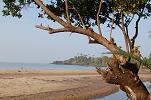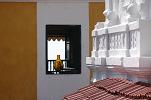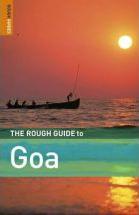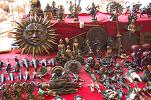|
Route To Independence, Recent History This page focuses on Goan history from the movement towards independene to events influencing Goa today. Explore Goa's ancient past and pre-colonnial history, or the Portuguese intervention in Goa's colonial period.
The Massacre of Gaspar DiasGoa was the last part of India to achieve independence from its colonial rulers, the Portuguese, fifteen years after India was liberated from the British. Discontent with the Portuguese rule however had been brewing for over a century both in Goa and in Portugal. On May 4th, 1835 the disenchantment stirred into violence when an attempted coup by the Goan military ended in the massacre of the Portuguese regiment posted at the fort in Gaspar Dias. Though the Portuguese did not lose their power in the area, it was clear that a tighter hold on the colony would be needed if they were to stay in power. The Independence Movement
Goa's IndependenceThe Portuguese influence on nearly 500 years of Goan history came to an end on December 17th, 1961 when Indian forces entered Goa, responding to an attack on Indian fishermen by the Portuguese a month earlier. The liberation of Goa, known as Operation Vijay took place with barely a shot fired on either side. In Goa, fears began to mount about the merger with India. Years of separatism between Goans and Indians and the social groups within Goa led to concerns about cultural identity and a drop in living standards due to the arrival of immigrants from poorer states. Goa's Statehood
Recent Goan HistoryGoa struggled to find political maturity throughout the final years of the 20th Century. Extreme differences of opinion among political parties (partly as a result of the divisional social policies instilled under Portuguese rule) have led to bitter oppositions, corruption and insecurity. The right-wing Hindu nationalist party, the Bharatiya Janata Party (BJP) are believed to have had a hand in anti Muslim riots of 2006, an event that seriously discredited Goa's reputation as a state of model religious harmony. With Goa increasingly more accesible to Indian immigrants and foreign investment, the state will no doubt change dramatically over the coming years, and it is hoped that the Goan government will have the strength to avoid the corruption and divisions that have so weakened it in the past.
Click here to leave Goan History and return to Travel India Goa Guide Home Weather In Goa -
Goa Festivals -
Indian Religion -
Facts About India -
Kerala History -
Goa Map
|
|
'Not to be missed' destinations of GoaAn intimate bay where dolphins are commonly sighted, Patnem is one of south Goa's best beach destinations. Spectacular views from Terekhol Fort reward travellers to Goa's far north. Review your favourite Goa restaurant and we will publish it on our site! Find all manner of treasures at the Flea Market that sprawls weekly on a Wednesday across the fields behind Anjuna beach.
|







